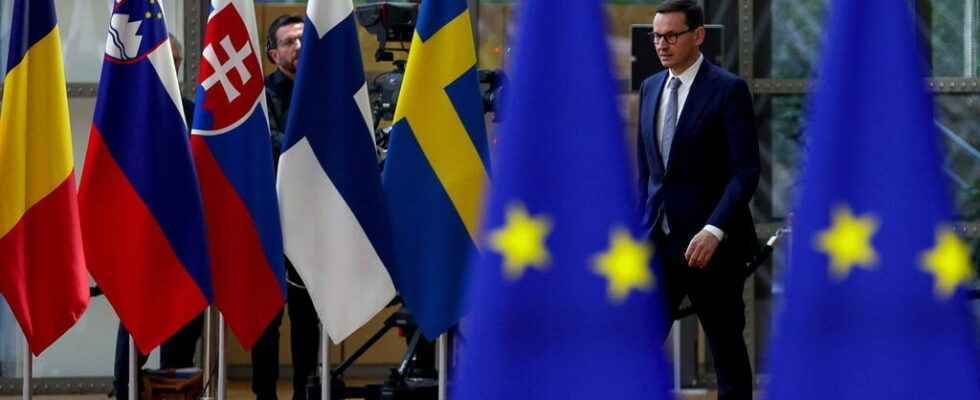It is a decision which should be welcomed with satisfaction by the Polish authorities: the European Commission validated this Wednesday, June 1 the recovery plan of 35 billion euros which had been frozen for more than a year due to a conflict on the independence of the Polish judiciary. Brussels believes that Warsaw has given sufficient pledges for the funds to be raised. But the decision arouses many criticisms within the European Union.
Originally, this aid was to be paid to Poland to help it revive its economy after the Covid-19 pandemic. But as for Hungary, the European Commission had decided to freeze these funds, accusing Warsaw of not respecting the independence of justice – which is one of the foundations of the European Union.
In recent weeks, the Polish authorities have multiplied gestures and announcements to appease the European executive: Warsaw has undertaken to dissolve the disciplinary chamber of the Supreme Court and to reinstate the magistrates who had been sanctioned by this chamber.
These announcements were enough to convince the Commission, but what also played a role was the political context. The war in Ukraine, Poland’s very firm support for its neighbor attacked by Russia and the massive influx of Ukrainian refugees on its soil.
Under pressure, Brussels therefore agreed to validate the recovery plan. But the Commission’s decision immediately caused a stir within the European institutions. In the Parliament of Strasbourg, many deputies consider the reforms undertaken by Poland insufficient and ask that no payment be made as long as Warsaw has not concretized, by acts, the commitments entered into before the Commission.
